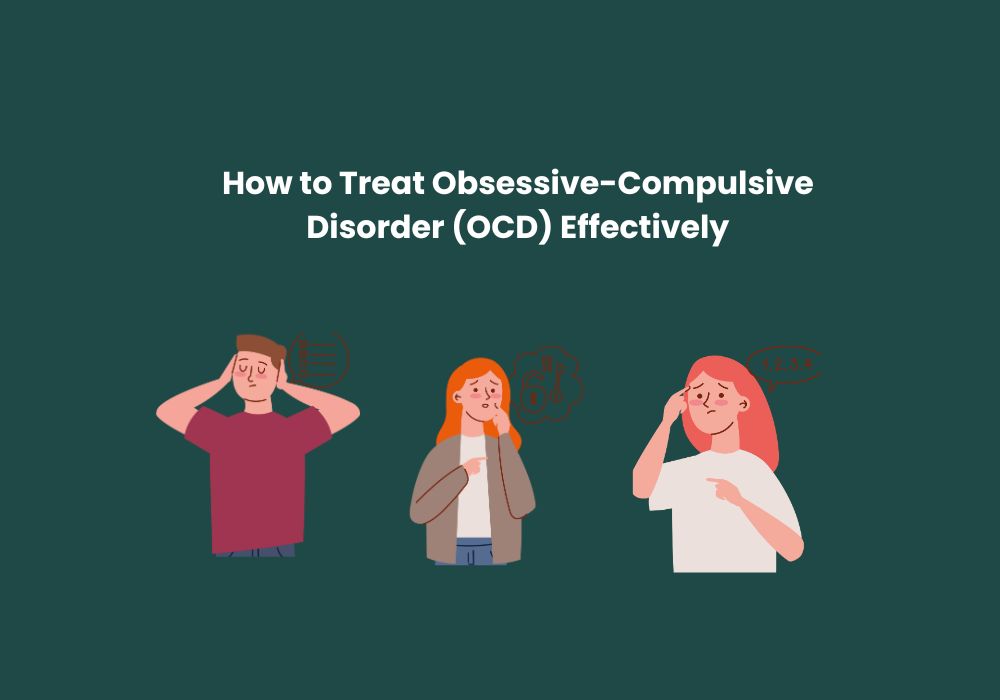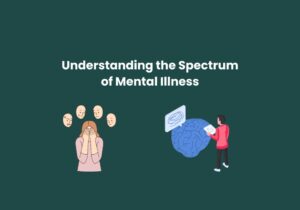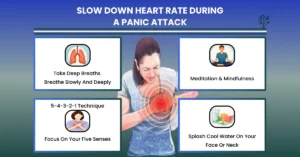Learn simple ways to treat Obsessive-Compulsive Disorder (OCD) with therapy, medication, and self-help tips. OCD is a common mental health condition that affects millions of people worldwide.
It causes ongoing, unwanted thoughts called obsessions. It also leads to repeated actions or mental rituals called compulsions. People feel forced to do these actions to ease their anxiety.
OCD can be stressful and disrupt daily life. But it is treatable. In this post, we share the best treatment options for OCD. You will learn how to manage symptoms and take back control of your life.
Before starting this blog, check out our previous blog post How Anxiety and Eating Disorders Are Connected. It will help them explore how anxiety and eating disorders are connected.
Understanding OCD: What Are the Symptoms?
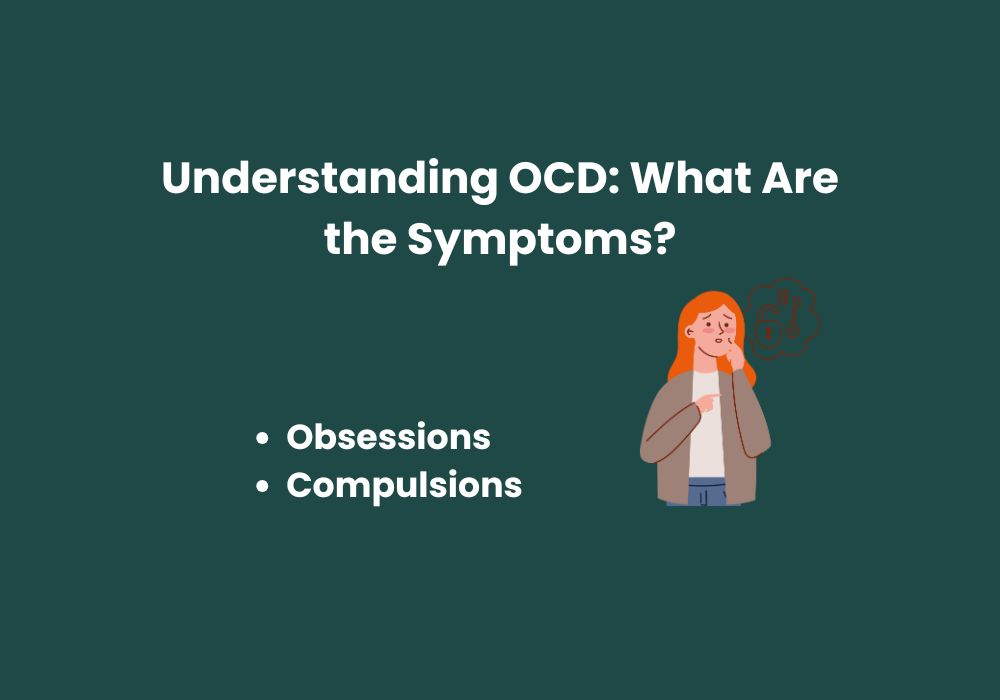
Before diving into treatment options, it’s essential to understand the common symptoms of OCD. The condition typically presents as a combination of obsessions and compulsions:
- Obsessions: Recurrent and intrusive thoughts, urges, or images that cause significant anxiety or distress. Common obsessions include fears of contamination, harm, or making a mistake.
- Compulsions: Repetitive behaviors or mental acts performed to reduce the anxiety caused by obsessions or to prevent a feared event. These may include washing, checking, counting, or repeating specific actions until they feel “right.”
Effective Treatments for Obsessive-Compulsive Disorder OCD
There are several effective treatments for Obsessive-Compulsive Disorder (OCD). Each one focuses on reducing symptoms and improving daily life. Here are the most common and proven treatments:
1. Cognitive Behavioral Therapy (CBT)
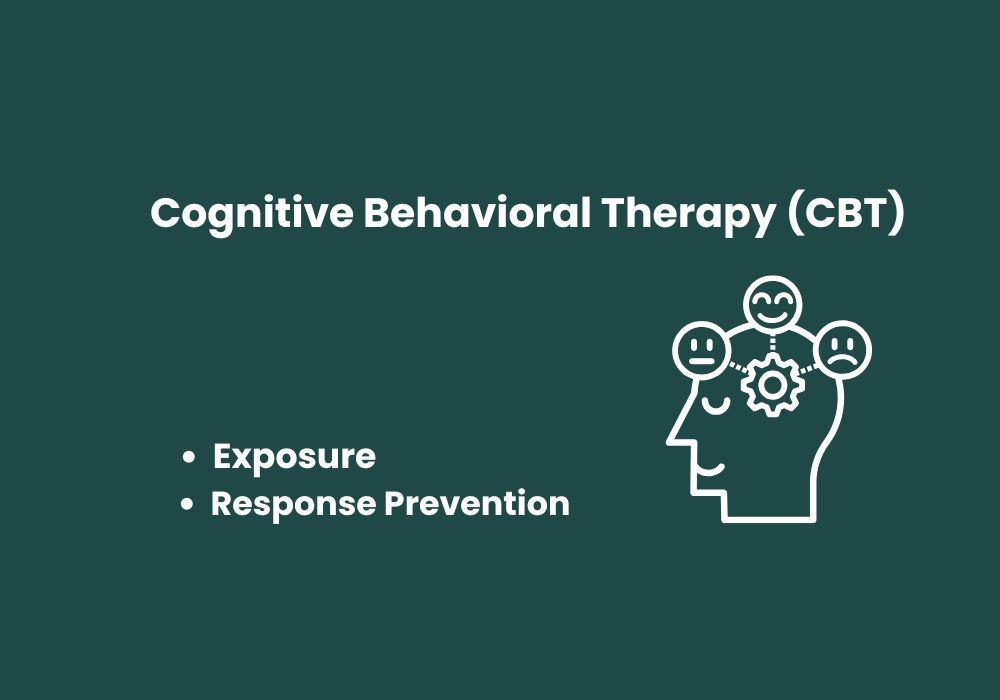
Cognitive Behavioral Therapy (CBT) is one of the most effective ways to treat OCD. This therapy helps people notice harmful thought patterns and replace them with healthier ones. It also works on changing behaviors that feed the cycle of obsessions and compulsions.
The specific type of CBT used for OCD is called Exposure and Response Prevention (ERP). ERP works by slowly and safely exposing a person to the thoughts or situations that trigger their anxiety. At the same time, it helps them resist the urge to do their usual compulsive behaviors. Over time, this process reduces fear and breaks the cycle of OCD.
- Exposure: In ERP, individuals are gradually exposed to situations that trigger their obsessions. This helps them confront their fears in a controlled environment.
- Response Prevention: In response prevention, the person is encouraged not to perform the compulsive behavior in reaction to their obsessions. Over time, this helps reduce compulsive behavior and anxiety.
ERP is widely considered the gold standard for treating OCD and is backed by extensive research showing its effectiveness.
2. Medication for Obsessive-Compulsive Disorder OCD
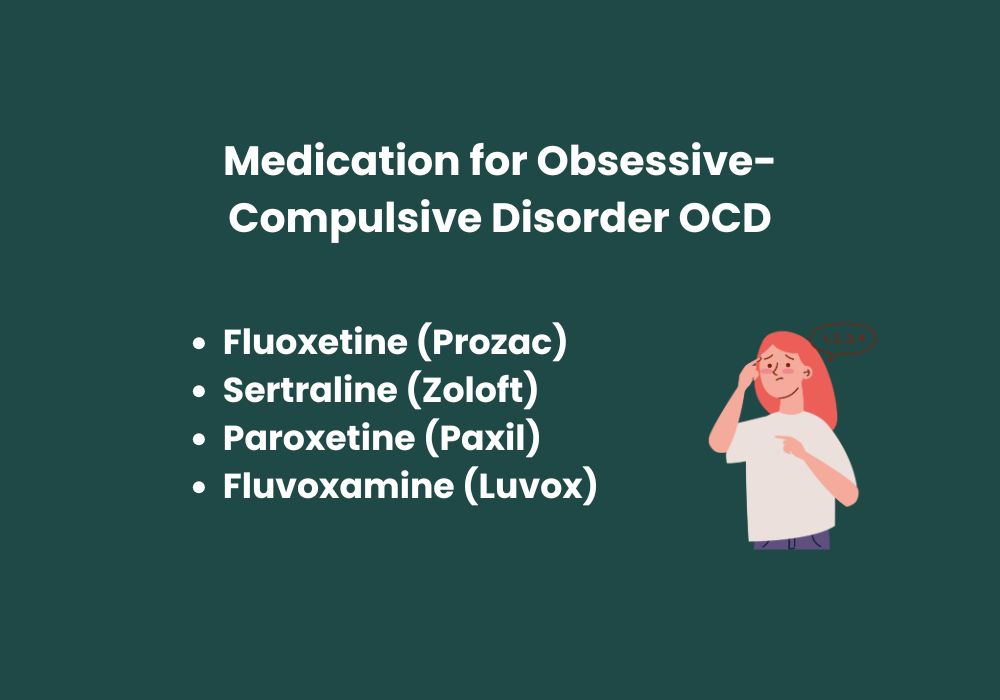
Medications can be an essential part of treating OCD, especially for people with severe symptoms. The most common medicines used are Selective Serotonin Reuptake Inhibitors (SSRIs).
SSRIs work by raising serotonin levels in the brain. This helps lower obsessive thoughts and cut down on compulsive behaviors. For many people, medication works best when combined with therapy.
Some of the most commonly prescribed SSRIs for OCD include:
- Fluoxetine (Prozac)
- Sertraline (Zoloft)
- Paroxetine (Paxil)
- Fluvoxamine (Luvox)
SSRIs are often prescribed as a first-line treatment for OCD due to their relatively favorable side-effect profile for individuals who do not respond to SSRIs, a class of medications called Clomipramine (a tricyclic antidepressant) may be considered.
3. Deep Brain Stimulation (DBS)
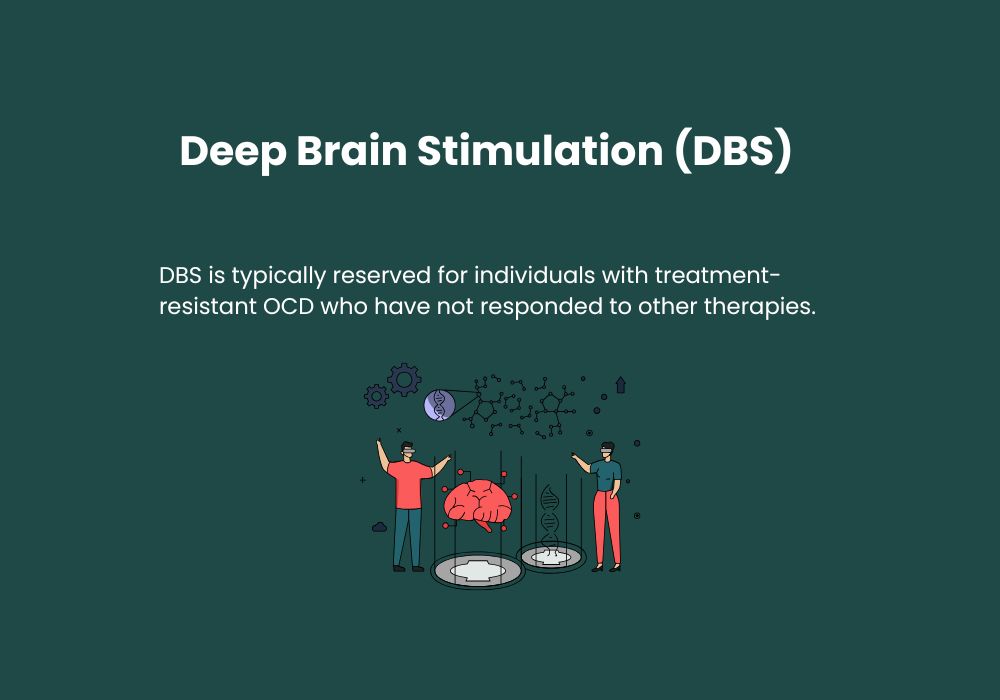
For people with severe OCD who do not get better with therapy or medication, Deep Brain Stimulation (DBS) may be an option. DBS is a type of brain surgery. In this procedure, doctors place small electrodes in specific parts of the brain. These electrodes send mild electrical signals that help control brain activity and ease OCD symptoms.
DBS is usually offered only to people with treatment-resistant OCD who have tried other treatments without success. While research shows promising results in many cases, DBS is still seen as a last-resort treatment.
4. Mindfulness and Relaxation Techniques
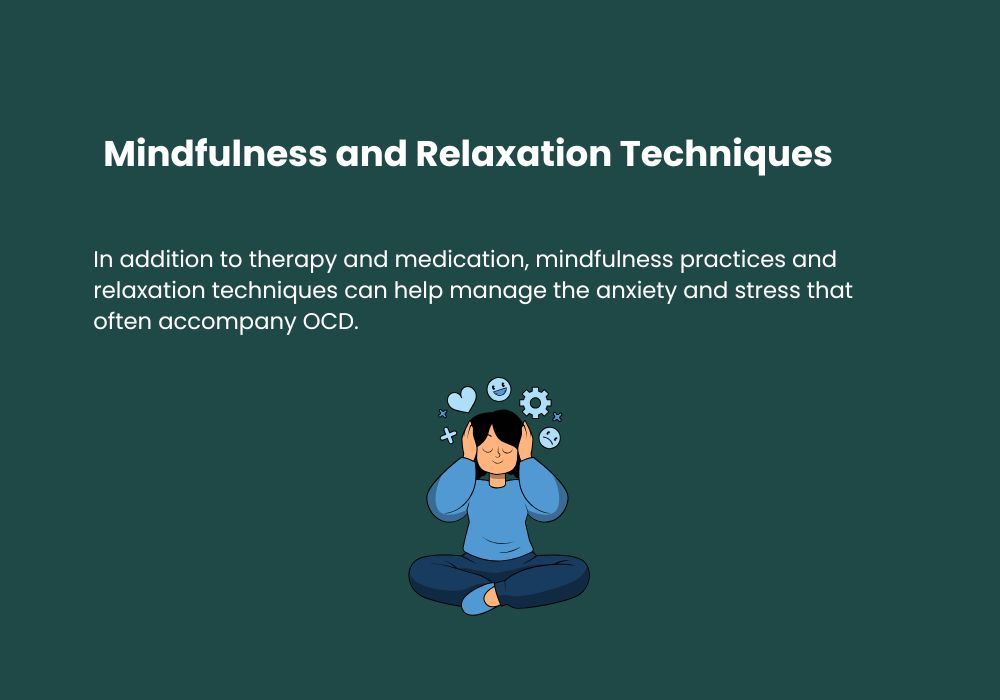
Along with therapy and medication, mindfulness and relaxation techniques can help manage OCD. These methods lower the stress and anxiety that often come with the condition.
Mindfulness means focusing on the present moment without judgment. It helps people become aware of their thoughts and feelings without getting caught up in them. This calm awareness can make OCD symptoms more straightforward to handle.
Some effective relaxation techniques include:
- Breathing exercises: Deep breathing can help calm the nervous system and reduce anxiety during moments of distress.
- Progressive muscle relaxation (PMR): PMR involves tensing and relaxing different muscle groups to help release tension and promote relaxation.
While mindfulness and relaxation techniques are not a substitute for traditional OCD treatments, they can be valuable tools for managing anxiety and improving overall well-being.
5. Support Groups and Peer Support for Obsessive-Compulsive Disorder OCD
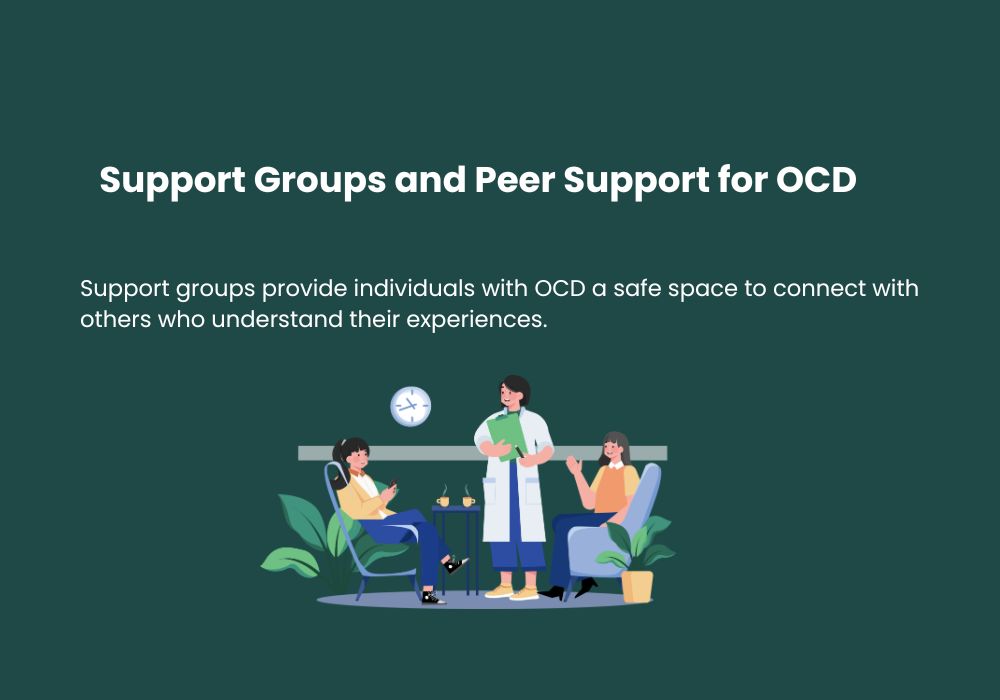
Support groups give people with OCD a safe place to connect with others who understand what they are going through. Sharing stories, struggles, and successes with others facing similar challenges can ease feelings of isolation and offer hope.
Support groups can meet in person or online. Mental health professionals lead some initiatives, while peers lead others based on their personal experience. These groups build a sense of community and give valuable emotional support.
6. Family Involvement in Treatment
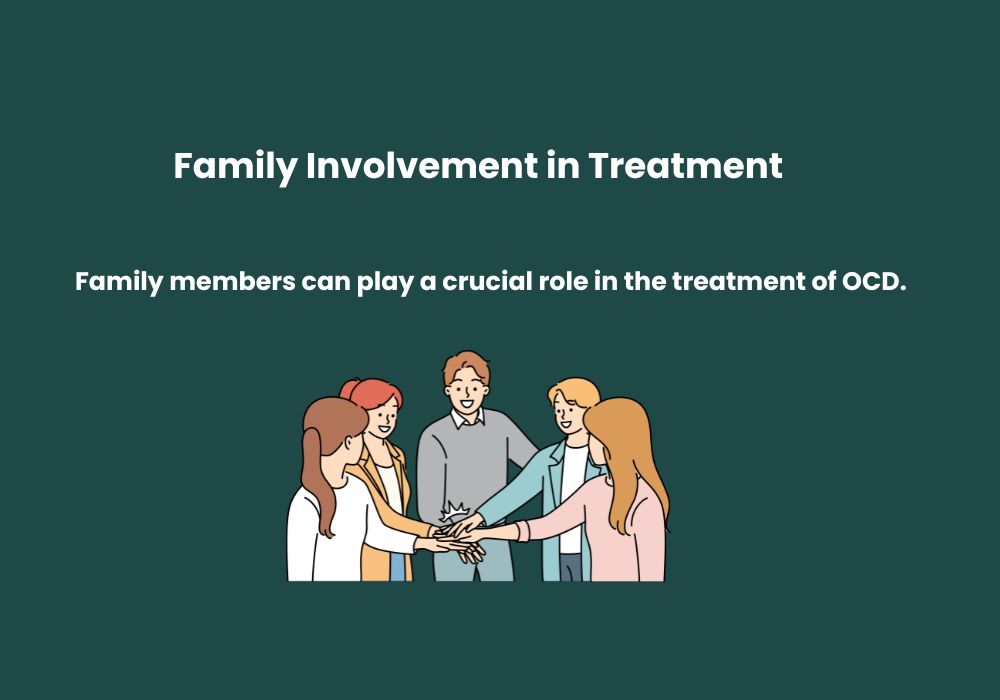
Family members can play a crucial role in the treatment of OCD. They often unknowingly reinforce the compulsions by accommodating the individual’s behaviors or fears. Family members need to understand the nature of OCD and how to support their loved ones during treatment.
Family therapy may be recommended to help families develop strategies for managing the symptoms and supporting the individual in their recovery journey. Encouraging the individual to adhere to their treatment plan and avoid enabling compulsive behaviors can significantly improve treatment outcomes.
7. Self-Care and Lifestyle Changes
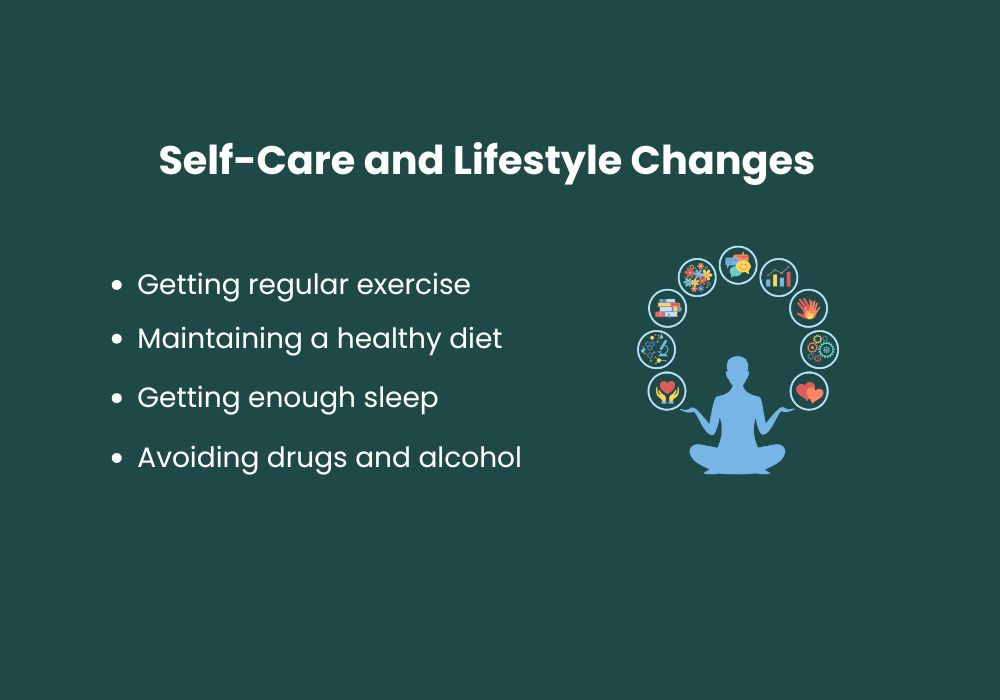
In addition to professional treatment, adopting a healthy lifestyle can help support recovery from OCD. Key self-care strategies include:
- Getting regular exercise: Physical activity has been shown to reduce stress and improve mood, both of which can help individuals with OCD manage their symptoms.
- Maintaining a healthy diet: A balanced diet rich in nutrients can promote mental health and well-being.
- Getting enough sleep: Proper rest is essential for mental clarity and emotional stability.
- Avoiding drugs and alcohol: Substance use can worsen OCD symptoms and interfere with treatment.
Final Thoughts
While Obsessive-Compulsive Disorder can be a lifelong challenge, effective treatment options are available to help individuals manage their symptoms and lead fulfilling lives. A combination of cognitive behavioral therapy (CBT), medication, mindfulness practices, and support systems can significantly reduce the impact of OCD and improve overall quality of life. If you or a loved one is struggling with OCD, it is essential to seek professional help to explore treatment options and begin the journey toward recovery.
At Peniel Psychiatry, we offer comprehensive mental health services, including specialized care for OCD. Our team of professionals is dedicated to helping you find the most effective treatment plan tailored to your needs. Don’t let OCD control your life. Contact us today to learn how we can help you achieve a healthier, happier life.

